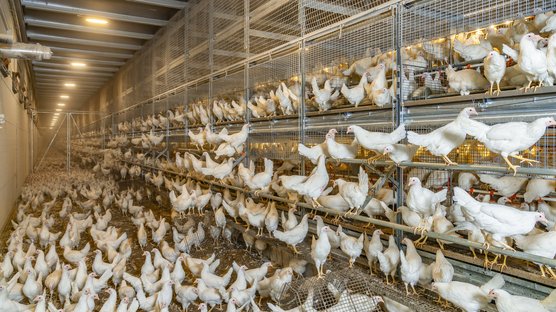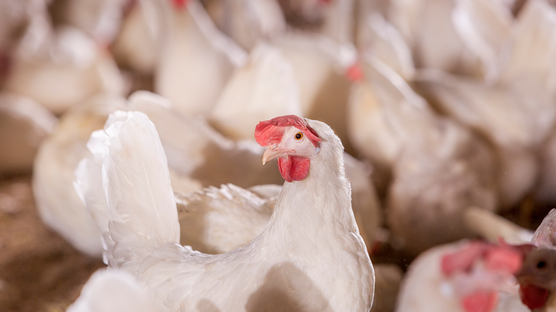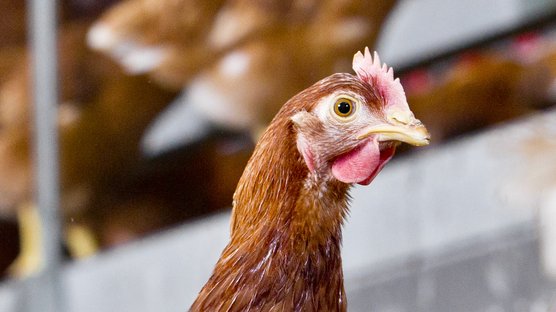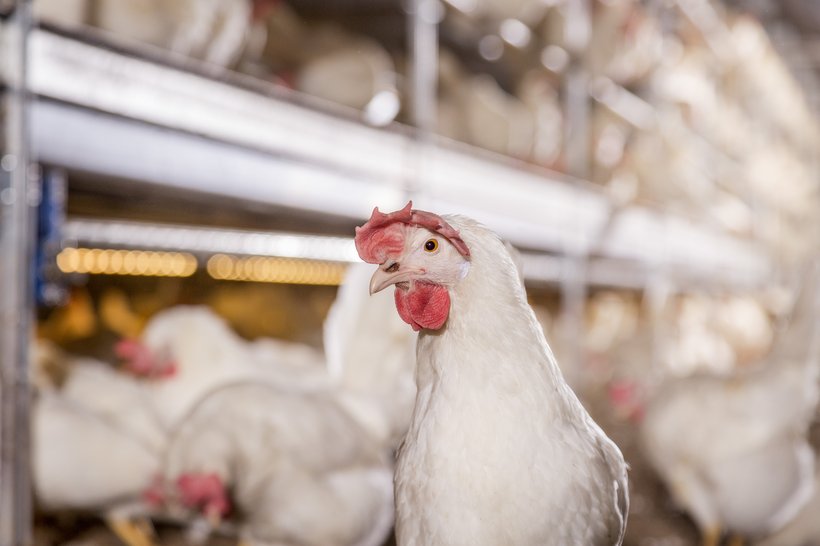
Published on Feb. 15, 2023
Going cage-free
Cage-free housing systems are becoming increasingly popular in Europe and the Northern America’s. In general, these cage-free housing systems provide more space and freedom of movement compared to traditional cage systems.
Here are some tips for managing laying hens in cage-free housing systems:
- Provide ample space: Laying hens in cage-free housing systems require more space than those in traditional cage systems. A good rule of thumb is to provide at least 1.25 square foot of floor space per hen. This will help to reduce stress, prevent aggressive behavior, and ensure that laying hens have enough room to move around and engage in natural behaviors.
- Install perches and nesting boxes: Laying hens need access to perches for roosting and nesting boxes for laying eggs. Provide multiple perches at varying heights (like aviary housing systems) to allow hens to perch and rest comfortably. Nesting boxes should be placed in a quiet and secluded area, away from high-traffic areas.
- Maintain good air quality: In cage-free systems, it's important to maintain good air quality to prevent respiratory issues and other health problems. Proper ventilation is essential to remove excess moisture and ammonia from the air. It's also important to keep litter or bedding clean and dry to prevent bacterial growth and reduce odor.
- Provide appropriate feed and water: Laying hens require a balanced diet and access to fresh, clean water at all times. Feed should be placed in feeders that are elevated off the floor to prevent contamination and reduce feed waste. Clean and fresh drinking water should be provided in an easily accessible way.
- Monitor for health and behavior issues: Regular monitoring of hens is essential to ensure their health and well-being. Walk your flock at least daily, and look for signs of stress, disease, or other health issues, such as abnormal behaviors or physical symptoms. Address any issues promptly to prevent further complications.
Overall, managing laying hens in cage-free housing systems requires attention to detail and a focus on meeting the birds' physical and behavioral needs. By providing ample space, perches, nesting boxes, proper ventilation, appropriate feed and water, and regular monitoring, you can help to ensure that your hens are healthy and productive.
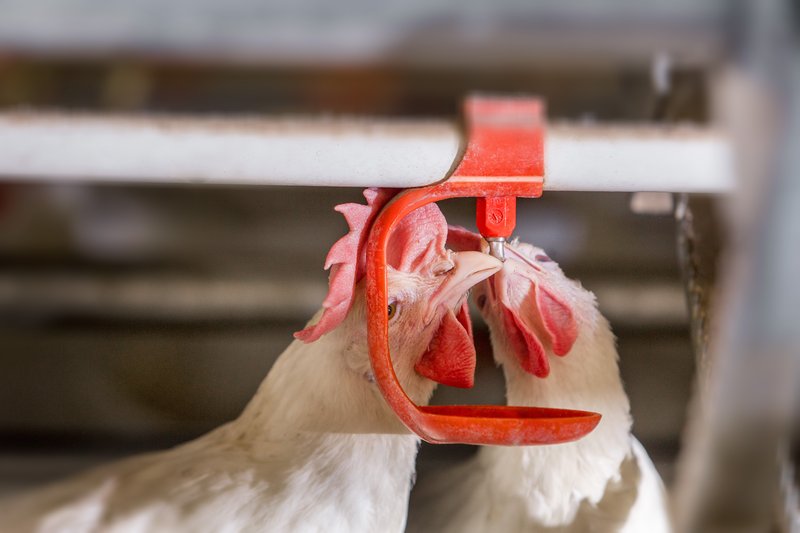
In addition to the general tips for managing laying hens in cage-free housing systems, there are some extra attention points to consider ensuring the health and well-being of the birds:
- Floor management: In cage-free housing systems, hens walk and scratch on the litter or flooring, which can become contaminated with feces and other waste materials. Regularly remove and replace soiled litter or flooring to maintain good hygiene and prevent the buildup of harmful bacteria and parasites.
- Lighting: Laying hens require sufficient lighting to regulate their circadian rhythm, which can affect their egg production and overall health. Provide appropriate lighting conditions, preferably LED-lighting, to ensure that hens receive adequate light for their needs.
- Social structure: In cage-free housing systems, hens have more opportunities to interact with each other, which can lead to social hierarchies and aggression. Monitor the flock for any signs of bullying or aggressive behavior and provide multiple feeding and drinking areas to reduce competition for resources.
- Enrichment: Cage-free housing systems provide more opportunities for hens to engage in natural behaviors, such as perching, dust bathing, and foraging. Provide enrichment materials, such as pecking blocks or hanging toys, to encourage these behaviors and prevent boredom.
- Biosecurity: Cage-free housing systems can pose a higher risk of disease transmission due to the proximity of birds and increased contact with outside elements, such as wild birds or pests. Implement strict biosecurity measures, such as controlling access to the facility, limiting contact with outside birds, and regularly cleaning and disinfecting equipment and facilities.
Overall, managing laying hens in cage-free housing systems requires attention to detail and a focus on meeting the birds' physical and behavioral needs. By paying extra attention to the factors that have been mentioned above, you can help to ensure that your laying hens in cage-free housing systems are healthy, productive, and well-protected from potential health risks.


